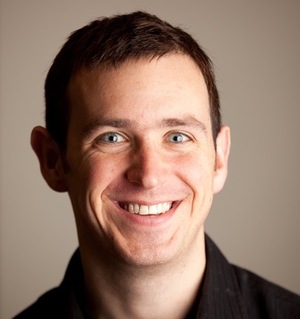Ph.D. student profile: Chris Holstrom

Chris Holstrom is a Ph.D. student at the iSchool.
When you meet someone who doesn’t know about your research, how do you describe it?
I start with a familiar reference point, like how librarians use Dewey Decimal Classification to organize books. Then I ask questions to illustrate how my research builds on that. For instance, how would you organize not just the books in a library, but millions of pieces of digital information? What type of system would you want to use to find information in that huge digital library? Who or what would you want to organize that information? Librarians, domain experts, social taggers, machine algorithms, you, or a mix? Most people, even those who have never heard of Knowledge Organization, are interested in answering those types of questions.
Who is the faculty member working closest with you? What are you learning from them?
I work most closely with Joseph T. Tennis. While our research interests in Knowledge Organization are closely aligned, our backgrounds and perspectives are very different. Joe has a comprehensive understanding of knowledge organization research and a strong background in library science. When I started the Ph.D. program, I had a bunch of ideas but no formal library science or knowledge organization experience. Joe has helped me position my ideas in knowledge organization research, pointed me to countless articles and books, and often shared fun stories about the authors that he recommended.
Why are you interested in this subject?
Before I started the Ph.D. program, I led large technical writing teams at Google. A big part of my job was figuring out how to organize tens of thousands of web pages, both for public-facing and internal-facing documentation. Surprisingly, helping engineers find documentation within Google was a huge challenge. We made some progress on that challenge with user tags, faceted browsing and navigation systems, and metadata-search integration. I loved how difficult those challenges were and wanted to keep asking questions about how to organize all kinds of information and make it easy to find.
What impact do you hope to make in the information field through your research/dissertation?
You can think of Knowledge Organization as a history of adapting to massive increases in information. Librarians centuries ago built organizational and retrieval systems for collections that they thought were huge and growing at unprecedented rates, but the Universe of Information has exploded since then. My goal is to design systems and processes that embrace that information explosion by coordinating different types of "librarians," like domain experts, social taggers, and machine intelligence to build adaptable, equitable, and effective knowledge organization systems for the inevitable information explosions in the future.
What surprised you the most when digging into your research?
Most knowledge organization systems use controlled vocabularies to ensure consistent terminology. For example, the Sears List of Subject Headings tells librarians to always use Railroads instead of Trains. However, knowledge organization researchers are frustratingly inconsistent in how they use key terms in their own field. Classification means different things to different researchers, often depending on whether they come from a library science or computer science background. What does Indexing mean? It depends on whom you ask.
What are your career goals once you graduate?
Teaching, teaching, and research. I returned to academia because I love teaching, and I've made teaching and pedagogy major focuses of my Ph.D. experience. At UW, I've enjoyed teaching classes in knowledge organization, data science, technical writing, and science writing. After I graduate, I want to stay in academia so that I can continue to explore my research questions and can keep my focus on teaching and working with students.
Visit Chris's website.
